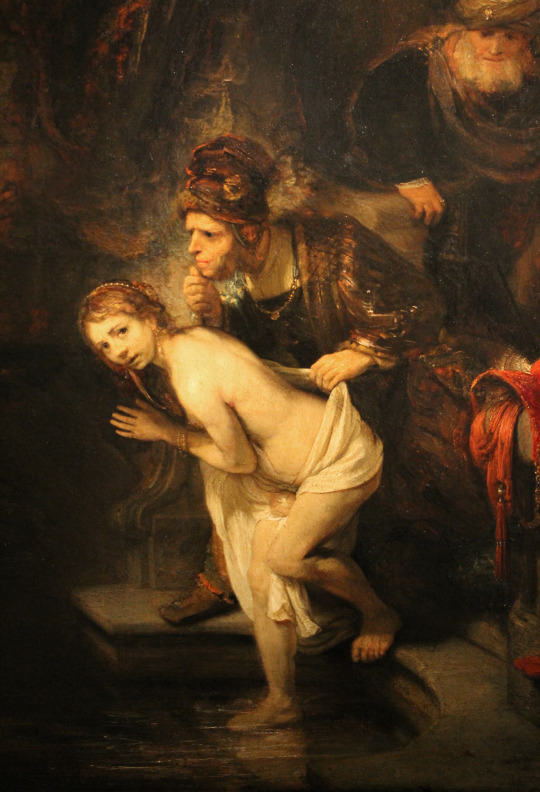Photo

Swann in Love (1984)
10 notes
·
View notes
Text
en un feca (1924) es tan fascinante porque mas o menos da un panorama interno del bajo mundo porteño de aquellos años. muchos autores explican q el compadrito y los chorros eran categorías bien demarcadas, eso se ve bien en la letra de ese tango (y caer en manos de un compadre es la peor amenaza q al chorro se le ocurre para una mujer). Desde lo formal, me fascina ese corte (pul-pulsando, lle- llenando, hicis- hiciste, etc) representando el habla del tipo que se traba por estar demasiado ebrio o triste o las dos. Se nota q el origen de este poema es plebeyo pero esos son recursos literarios sofisticados. Por último: la palabra chabón, totalmente vigente y actual. No sabía que era tan vieja.
#y ni hablar de lo violento y sexista de la letra. es el cuerpo de la mujer en medio de este mundo de criminales#en fin. fascinante texto literario
2 notes
·
View notes
Text

So has anyone ever wondered what would have ensued if Stefan Zweig had embarked on a lengthy whaling voyage or --- (I am forcibly escorted from prewar Vienna)
7 notes
·
View notes
Text
Madame Putiphar Groupread. Book Two, Chapter XL



various instances of Rembrandt rejecting the tradition of depicting rape in visually pleasing or erotic ways. clockwise from top: detail of Susannah and the Elders, sketch for the same work, and a sketch for the Rape of Ganymedes.
{ @counterwiddershins + @sainteverge }
brace yourselves bc there's A LOT i found interesting in this chapter, Lots of fascinating rhetorical choices by the king, who in this chapter is portrayed exclusively by how he talks. Deborah continues to be assertive and smart and attempting to fight back openly, instead of being a hypocrite or a pretender/diplomat. She is moraly incapable of using the strategies of the court for very long.
-in the beginning the king pretends to be the baron of Gonesse. the false persona allows him to persuade Deborah that his power is limited. Deborah pretends to believe him for a while, even humors him with some moderate language of seduction (“I languished, I waited ardently for your arrival”) This doesn't last, as soon as The king enquires about her mourning arm ribbon, the memory of Patrick and the hope that the king is humane enough to be touched by her story, she speaks like the Deborah of old. She even calls her abduction an abduction to his face. No sugar coating or diplomacy from her. She accuses Villepastour and Pompadour openly, and expects the King to help her avenge herself. But the King is currently pretending to not be the King. Deborah's intrinsec belief that all people share her human decency + some idealizations of the role of the king as assigned by god, cloud her judgement. Not only the king knows the women are abducted, he doesn't care -to understand this classist mentality, Sade's letter are especially illustrative. Men of certain standing deserve to have women of lower status abducted for their fun, there is no solidarity because he doesn't even consider the women to be in the same species as he, the whole divine right idea ennables this mentality-
-the role the king plays as Gonesse is that of a busy diplomat -as opposed to his reality in this novel as a diletante-who is forced away from gallant affairs by diplomacy on the borders. He paints himself as a romantic soldier and politician, longing for love while busy defending the frontiers of his nation. He admits having abducted Deborah, and pretends to think abducting people is wrong and not something he does on a daily basis, but what was he to do, the love he felt was too strong, and he has his whole life to attone and make it up for her.
-the word abduction is thrown back at him by Deborah when asked about her mourning arm band.
-When “Gonesse”claims to not be an all powerful man, Deborah asks him to speak to the King, to which Gonesse answers with assorted cynic ideas on men and women and conquest, she lost a lover but earned two, and if that is bad, women should take better care of their lovers. In a rhetorical move worthy of Benvenutto Cellini's manipulations of the Pope, Deborah paints a more flattering picture of the king: He would never say those things to an abducted widow in mourning, because he hates crime and is a paldin of justice. To which the King can only say he is flattered, tries to brush it all off saying she will be “satisfied”only now it's not the right time to talk of those sad things, since Gonesse is a very susceptible to melancholy and fits of terror (we see slowly how the king's formidable appearance in his grand entry, that which drove deborah to her knees crumbles down. His performance of power is weak, when inflamed by desire he can only rely to two strategies, not more sofisticated than those of Villepastour, distracting Deborah with stories -remember Villepastour pulling out a porn pocket volume out of his Green redingote?- or, physical violence, something the woman is blamed for forcing the men to resource to. As we will see, these are the two paths the king will use in this whole Seduction Scene(tm). Fiction and story telling are a mirage, violence is what lies behind the embezzlement-even within it, we will see what kind of images the King's imagination summons.
-even in this initial verbal phase, violence cannot be separated from his royal sexuality. He cannot praise Deborah's beauty without saying how -if he were the King of France- he'd quickly annex Ireland and live there if all women were as beautiful as her. This is the kind of thing you can picture a king saying casually, as a joke, without batting an eyelash. Deborah being who she is, she cannot let this pass. And not diplomatically either, calling him a hammer, a yoke, an imposer of the law of the strongest.
-The king jokes that once she knows him better she would never call him any of that, nevertheless he is flattered and not insulted. The king's speech continues to be peppered with sexism, reifying Debby by asking her not to move once she asumes a facial expression and pose that turns him on-interestingly, a pose of sorrow and pain- he asks her to become a statue, because this pose highlights her white shoulders and her breats. He makes some veiled allusions to cannibalism -never shipwreck in Tovy-Poenammou- making his speech once again, etnocentric and colonial, and comments on his taste on women's clothes, the incresingly low necklines and wide decoletages can stay, but the neck ornaments and gauzes are annoying obstacles that women wear emmiting thusly a double signal of provocation and mock prudery. The word choice once again, is very, very interesting: women are shrouded in bandages, like an open sore, the image is vaginal and violent. Has this man ever pleased a woman or does he only know how to cause pain?
And the subject of gauzes makes the king wonder into his next piquant story to distract Deborah and get her in the mood for love. This is what the king meant when he inived her to talk of love for a while, sadism and colonialism. Even when thinking he's making pleasant small talk the violence of his role just drips through.
The story is about two women who seeked to satisfy both “reason and customs.”by riding a carriage through the Tuileries gardens, naked under white sheer dresses, people gazing at them like melons are savoured with the eyes through the glass bells containing them. The connection to Deborah is only through the gauze on her neck, revealing the king's no longer thinking much with the head between his shoulders. Indeed, he declares to be in a fight between reason and his education, whic is what keeps him at bay from devouring Deborah, like a cannibal. Through their dialogue only, we see how the king wants to get things in motion, and Deborah attempts to defend herself. The dialogue is really succesful here, Deborah accuses him of acting unworthily of the role that God has bestowed on him. But Gonesse is only a man! A man, yes, but he acts like a dog, retorts Deborah. The not-King protests, (i can imagine his surprise at being spoken like this, even while acting as Gonesse he's still playing the part of a noble) Deborah too wants to get her own plot in motion, admits she knows he is the king. In return, he claims she is dreaming, and his touch becomes forceful. Deborah replies:
““Is this the hospitality a foreign girl finds in your Kingdom! her husband is murdered, and then she is dragged in a nameless place, and she is fattened up for the King’s pleasures, and the King rapes her. (...)”
tr. @sainteverge
the rest is about the kind of good kings Patrick and Debby idealize, she asks him if he is not ashamed for acting in ways that would displease them (which is fun because these kings were as much colonial brutes as the more modern, supposedly decadent ones...)
{--Also, spanish speaker moment: the word engaissé in french, which Debby uses for fattening, has a double meaning in french that engrasado in spanish doesn't share, which made me check if french kept the “greased up”meaning, and it does, it means mainly fattened, but also greased, so it's an interesting if secondary allusion to lubrication --}
Anyways I strongly appreciate Borel not going for an euphemism for rape here. The book boldly dares to call the king a rapist, no excuses, no attempt to soften facts.
Deborah continues with her rhetorical mastery while trying to appease the previously loquacious king who is no longer verbal but exclusively physical now in her attempt to overpower her:
“You want pleasure: I am no more than bramble, than a thorny bush of which the leaves and flowers have fallen with the wind of misfortune. I am only a pleasure-less and awkward foreigner, sad, mournful, wilted, her heart full of poison and loathing and dejection, regretting her native mountains, weeping her mother whose grave is still freshly stirred, and her spouse whose blood is still steaming.—Mercy, mercy, Sire! let me go: you are asking pleasures from an urn, you are asking caresses from a cypress! Look! I am cold and icy like the dead!—Please! please! humanity, Sire! my womb is full: do not give the orphan whom I am bearing a prostitute for a mother!... ”
As the narrator had done before, Deborah likens her body with hostile botanical and geographical terms,her body is arid and spiky like thorny bushes of her motherland.
She is an urn, a cypress, the tree you can find in every cemetery, even her body is cold, she is partly dead because of the triple mourning of her husband, her mother and her motherland. (there is nothing appealing in this inactive/inert/dead nature, as opposed to other romantic texts)
Deborah also subverts nobility related rhetoric: his rape will render her a prostitute. The king corrects her, he is Zeus abducting Ganymedes. His touch ennobles, if any of them is abasing themselves, it is the king, by touching a lowly creature such as her.
The king truns to persuasive talk once more, making her believe she can be the next Pompadour. If she lets him rape her, she can rule his heart, she can have every luxury, yada yada, fame, even her revenge, even Cockermouth Castle can be moved to France if she misses it.
The king's description -paying her yielding with goods, social status and revenge-convinces Deborah further that she is being put into the role of a prostitute, and that is, according to her deeply religious and influenced by sexism beliefs, a dishonourable role. (while it should be enough for her to think, I don't want to have sex with you, I am so disgusted by you I cannot bring myself to do it even if I don't want to, because you kidnapped me and are unmoved by the fact that I don't want to have sex with you. The end) Her liberty is owed to her, she wants it back. The king insists, Deborah resists, she begs desperately on her knees, the king, we asume, pulls his dick out, Deborah's refusal of it and her insulting him as a king: (“King, you are infamous!”) has him accusing of being a Lucretia, who was brought up on analysis of book one, the allusion is perfect, because her fighting back after her rape by Tarquinius ended a monarchy and inaugurated the Roman republic.
The most memorable line of the book is uttered by Deborah, and with it ends book three. Recalling to the defeats that are covert victories Montaigne speaks of in his des Cannibales, we can say this desperate cry is not that of a beaten person, but a war cry of someone who will bounce back after the ordeal.
“Tarquin! someone shall avenge me!”
“Who?”
“God and the people.”
dieu et le peuple. We shall see how Borel shows this fated revenge on later chapters......
2 notes
·
View notes
Text

'humano' by javier pérez, 1988 in la biennale di venezia 49
151 notes
·
View notes
Text
brutalist strap on
rococo strap on
art deco strap on
4K notes
·
View notes
Text
i want to share with you some of my favourite graffiti from Pompeii
“Weep, you girls. My penis has given you up. Now it penetrates men’s behinds. Goodbye, wondrous femininity!“
“Amplicatus, I know that Icarus is buggering you. Salvius wrote this.“
“We two dear men, friends forever, were here. If you want to know our names, they are Gaius and Aulus.“
“Floronius, privileged soldier of the 7th legion, was here. The women did not know of his presence. Only six women came to know, too few for such a stallion.“
“On April 19th, I made bread.“
“ I have buggered men.“
“If anyone does not believe in Venus, they should gaze at my girlfriend.“
“It took 640 paces to walk back and forth between here and there ten times.“
“Chie, I hope your hemorrhoids rub together so much that they hurt worse than when they every have before!“
“Epaphra is not good at ball games.”
“Two friends were here. While they were, they had bad service in every way from a guy named Epaphroditus. They threw him out and spent 105 and half sestertii most agreeably on whores.“
“Secundus likes to screw boys.“
321K notes
·
View notes
Text
and yet through all this interest in the myth people still have not rediscovered mary shelley's Proserpine
850 notes
·
View notes
Text
send help i’m falling fast for Medea
5 notes
·
View notes
Text
me, seconds from making incredible artistic breakthrough: wow I don’t actually need to handle the stylus at maximum pressure at all times 🤯‼️
#me after drawing for hours while pressing the pen at the same force level as the jaws of a comodo dragon#wow i wonder why my wrist and neck hurt
6 notes
·
View notes
Text

what if Splendeurs et misères was just a love story between a man and a baker 🧐
what if when Vautrin said he had « bouffardé avec le boulanger » he was being literal and not argotish, and the narrator and the other prisoners misunderstood him.
7 notes
·
View notes
Text
what if when Vautrin said he had « bouffardé avec le boulanger » he was being literal and not argotish, and the narrator and the other prisoners misunderstood him.
7 notes
·
View notes





